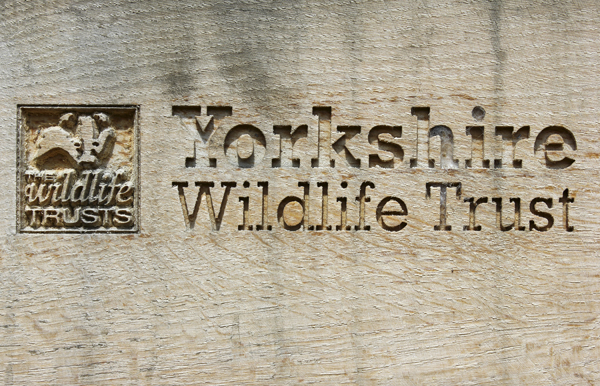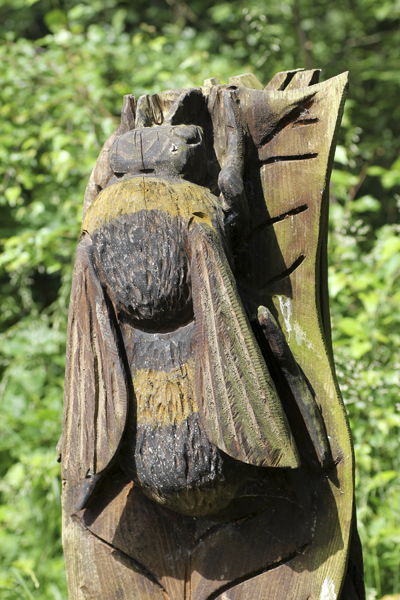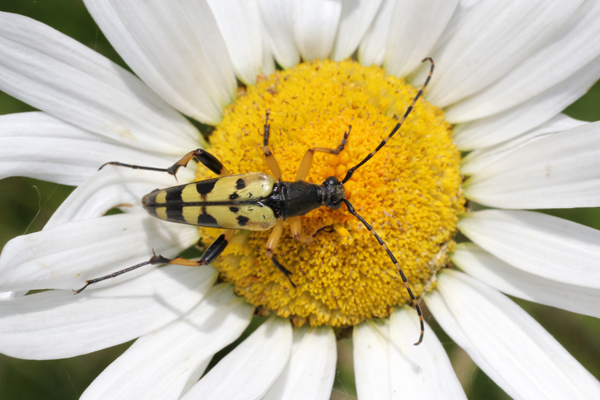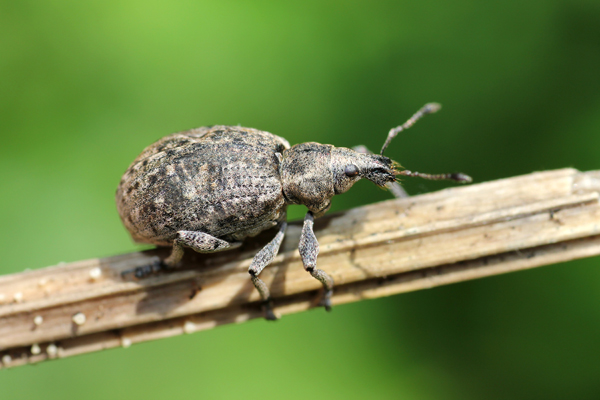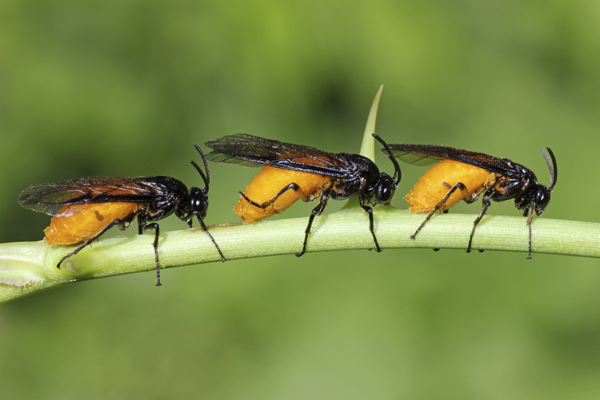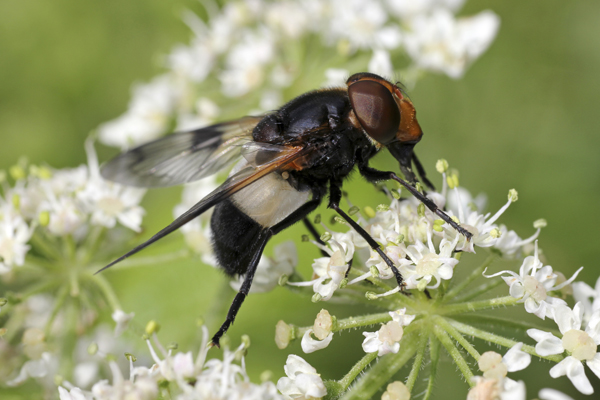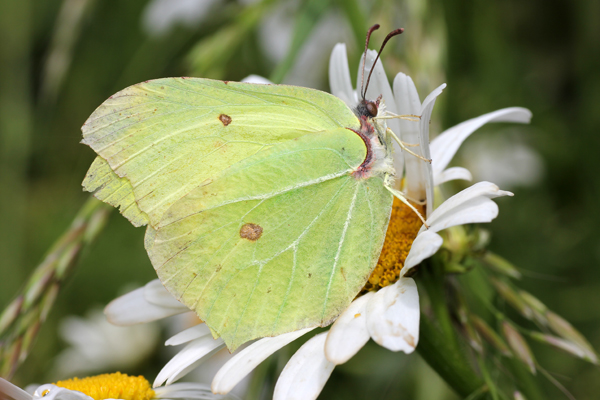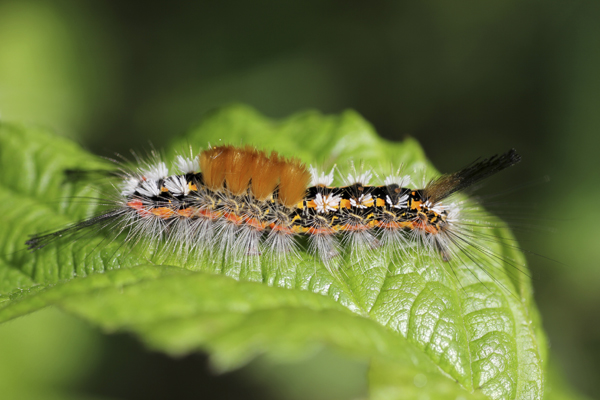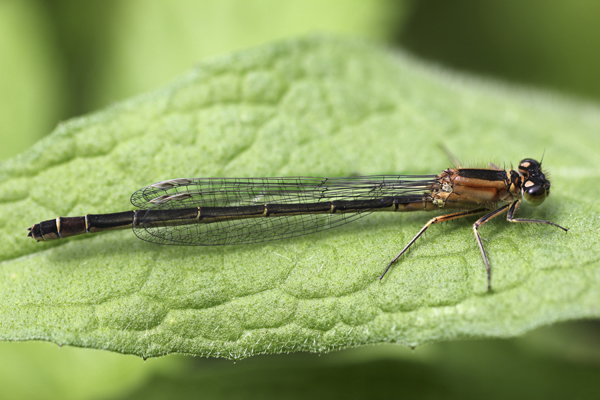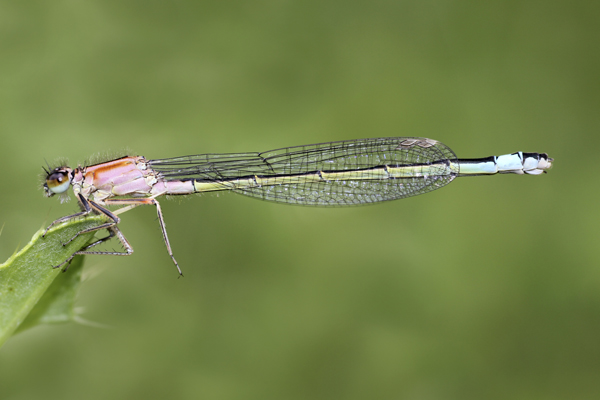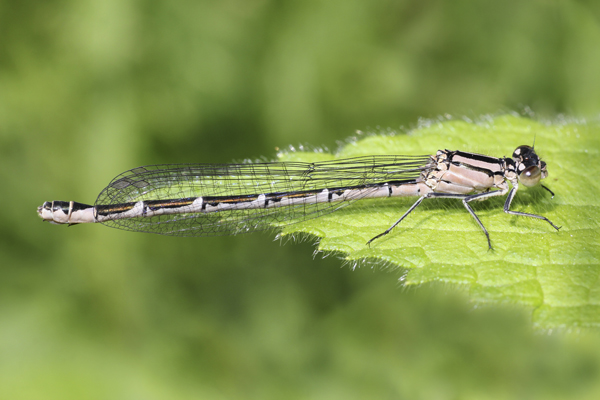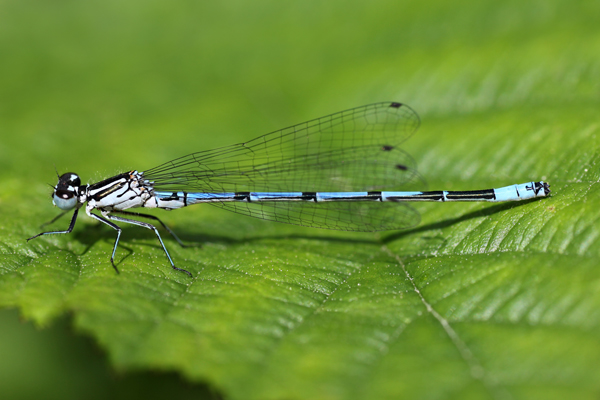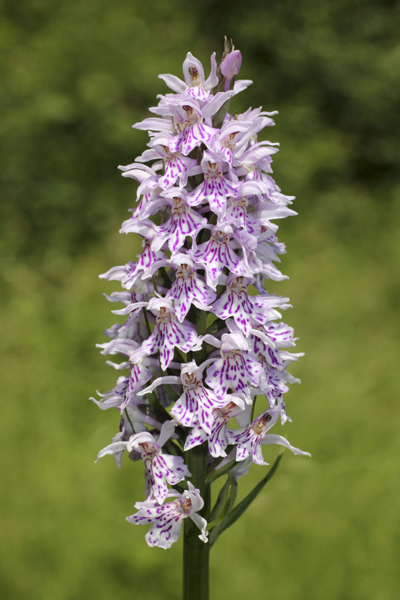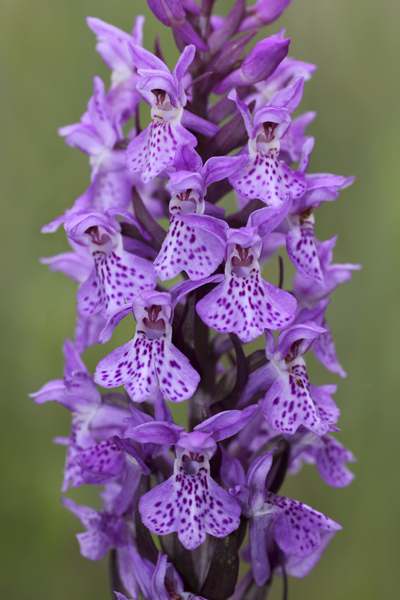Four years have passed since the previous MNA Coach Trip to the Yorkshire Wildlife Trust Reserve at Potteric Carr, close to Doncaster. Most members headed to the far side of the reserve with the scrapes and Huxter Well and Piper Marshes. They returned bubbling with news of fantastic views of Bittern, Black-necked Grebe, Marsh Harrier, Little Ringed Plover, Little Egret etc. and seemed pleased with the Odonata including an Emperor Dragonfly Anax imperator and a few Migrant Hawkers Aeshna mixta. The usual Summer Reedbed Warblers were around with Reed, Sedge and Cettis heard and seen in many cases. Mammals included a few Rabbits Oryctolagus cuniculus, Grey Squirrels Sciurus carolinensis tucking into the bird feeders and Bryan Workman had views of a young Muntjac Muntiacus reevesi.
Bumblebee Sculpture
I concentrated my efforts around the main Reedbed filtration system and Willow Marsh in my usual guise becoming tangled amongst the vegetation and reeds looking for real Insects amongst the fine wood carvings. I certainly had a packed day with a Spotted Longhorn Beetle Leptura maculata formerly Strangalia maculata, a Golden-bloomed Grey Longhorn Beetle Agapanthia villoviridescens, a Wasp Beetle Clytus arietis, a couple of Red-headed Cardinal Beetles Pyrochroa serraticornis, a Pine Weevil Hylobius abietis and Black and Red Froghopper Cercopis vulnerata. Biting critters included half a dozen Black-horned Clegs Haematopota crassicornis failing to look innocent on a wooden boardwalk railing.
Leptura maculata
Pine Weevil
Large Rose Sawfly
Three Large Rose Sawfly Arge pagana were egg-laying all in a line along the stem of a Dog Rose Rosa canina and there were Alder Vein Angle Galls caused by the Gall Mite Eriophyes inangulis. Hoverfly species included Heliophilus pendulus, Volucella pellucens and Syrphus ribesii, Parhelophilus frutetorum and Eristalis pertinax.
Volucella pellucens
Butterflies and Moths included a Large Skipper Ochlodes venata, Brimstone Gonepteryx rhamni, Speckled Wood Pararge aegeria, Cinnabar Moth Tyria jacobaeae, the striking caterpillar of the Rusty Tussock Moth a.k.a. Vapourer Orgyia antiqua and Small Magpie Anania hortulata.
Brimstone
Rusty Tussock Moth Caterpillar
As well as Dragonflies the Damselflies were well represented with males, females, tenerals and some interesting colour forms noted. They included Large Red Damselfly Pyrrhosoma nymphula, Azure Damselfly Coenagrion puella, Common Blue Damselfly Enallagma cyathigerum and Blue-tailed Damselfly Ischnura elegans with colour forms rufescens and rufescens-obsoleta represented.
Blue-tailed Damselfly Ischnura elegans female form rufescens-obsoleta
Blue-tailed Damselfly Ischnura elegans female form rufescens
Common Blue Damselfly Enallagma cyathigerum female
Azure Damselfly Coenagrion puella male
Common Spotted-orchid
Plant Species included Perforate St. John’s Wort Hypericum perforatum, Silverweed Potentilla anserina, Wild Strawberry Fragaria vesca, Wood Avens a.k.a Herb Bennet Geum urbanum, Dog-rose Rosa canina, Common Bird’s-foot-trefoil Lotus corniculatus, Tufted Vetch Vicia cracca, Black Medick Medicago lupulina, White Clover Trifolium repens, Field Forget-me-not Myosotis arvensis, Hedge Woundwort Stachys sylvatica, Selfheal Prunella vulgaris, Wild Teasel Dipsacus fullonum, Common Knapweed Centaurea nigra, Beaked Hawk’s-beard Crepis vesicaria, Fox-and-cubs Pilosella aurantiaca, Oxeye Daisy Leucanthemum vulgare, Common Ragwort Senecio jacobaea, Bulrush Typha latifolia, Common Spotted-orchid Dactylorhiza fuchsia and a profusion of Southern Marsh-orchids Dactylorhiza praetermissa.
Southern Marsh-orchid
If you are interested in the wildlife of the north-west of England and would like to join the walks and coach trips run by the Merseyside Naturalists’ Association, see the main MNA website for details of our programme and how to join us.

